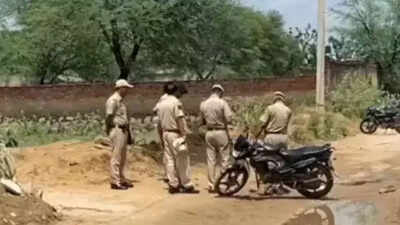Omar Abdullah: ‘Bustling with activity’ Jammu and Kashmir CM Expresses satisfaction over revival of tourism in Pahalgam after April terror attack | Srinagar News

NEW DELHI: Jammu and Kashmir chief minister Omar Abdullah on Sunday expressed satisfaction over the revival of tourism in Kashmir, particularly in Pahalgam, which had seen a sharp decline in visitors following the April 22 terror attack at the Baisaran meadow that claimed 26 lives, including 25 tourists and a local pony ride operator.Sharing his observations in a post on X, Abdullah noted a remarkable change in the atmosphere of the popular tourist destination.“The last time I was in Pahalgam I cycled through a market that was all but deserted.” he wrote. “Today I came back to a Pahalgam that was bustling with activity. Tourists from various parts of the country competed for space with local picnickers who were enjoying the cool climate & rainy weather..”He credited the visible recovery to the sustained efforts of his administration. ” It’s very satisfying to see the efforts my colleagues & I have been putting in slowly bearing fruit.,” he added.On April 22, brutal terrorist attack in the Baisaran Valley of Pahalgam, Jammu and Kashmir, claimed the lives of 26 people, including 25 Indian tourists and one Nepali national, marking one of the deadliest assaults in the Valley since the 2019 Pulwama attack.The attack sparked nationwide outrage and led to a spate of travel cancellations across the Valley, casting fresh doubts on the region’s security. The massacre drew strong condemnation from world leaders and reignited concerns over cross-border terrorism. In a swift and strategic response, India launched Operation Sindoor during the night of May 6–7, targeting nine terror hideouts of Lashkar-e-Taiba, Jaish-e-Mohammad, and Hizbul Mujahideen across Pakistan and Pakistan-occupied Kashmir.Though India maintained that its actions were focused and non-escalatory, Pakistan retaliated with drone strikes on Indian cities. In turn, India responded by disabling Pakistan’s HQ-9 air defence system. As tensions escalated, border evacuations were initiated. On May 10, following further provocation, India carried out strikes on eleven Pakistani air bases, including Nur Khan, Murid, and Rafiqui. After four intense days of missile and drone exchanges, both nations agreed to a ceasefire, bringing temporary relief amid growing international calls for de-escalation.Operation Sindoor was not just a security measure but also a message of reassurance to the rest of India that Kashmir remains committed to ensuring the safety of its visitors. With improved security, confidence began to return, and the region is now witnessing a gradual but hopeful revival in tourism.




